 Editor’s Note: I have heard friends discuss the new PBS series “Country Music: A Film By Ken Burns.” Most of those reviews are coming from the general population, not necessarily Country Music fans. To get a professional’s opinion, I asked veteran major market country jock, Jay Hamilton, for his thoughts. Jay is a radio veteran. He began his radio career in the early sixties — playing pop/rock music in Moses Lake (KSEM), Bellingham (KPUG), and Colorful KOL (Seattle). By the early ’70s, Jay was playing country music on the radio — Bellingham (KBFW), Portland (KPOK) In the mid-70s, Jay moved to Austin TX (the heart of Outlaw Country), where he worked as a songwriter and as a deejay at an AOR station. Jay returned to the PNW in the late ’70s and joined the staff of Country Giant KMPS-AM & FM in Seattle. He spent the last of the ’70s, and most of the ’80s, at KMPS as a jock and then as the Promotion Director. At KMPS-FM, Jay was the “in-house” Country Music “facts and history” guy. He produced and hosted two successful weekly Sunday night specialty programs: “Jay Hamilton’s Collector’s Items” and “The Old Time Country Music and Bluegrass Show.” When this editor worked with Jay in Bellingham, he was the PD and I was impressed with his breadth of knowledge of country music and music in general. In fact, I recall that when he interviewed Waylon Jennings, at the end of the interview, Waylon said to Jay: “Hey Hoss, you know more about me than I do”! Suffice to say, Jay Hamilton has a deep understanding of country music and its early roots.
Editor’s Note: I have heard friends discuss the new PBS series “Country Music: A Film By Ken Burns.” Most of those reviews are coming from the general population, not necessarily Country Music fans. To get a professional’s opinion, I asked veteran major market country jock, Jay Hamilton, for his thoughts. Jay is a radio veteran. He began his radio career in the early sixties — playing pop/rock music in Moses Lake (KSEM), Bellingham (KPUG), and Colorful KOL (Seattle). By the early ’70s, Jay was playing country music on the radio — Bellingham (KBFW), Portland (KPOK) In the mid-70s, Jay moved to Austin TX (the heart of Outlaw Country), where he worked as a songwriter and as a deejay at an AOR station. Jay returned to the PNW in the late ’70s and joined the staff of Country Giant KMPS-AM & FM in Seattle. He spent the last of the ’70s, and most of the ’80s, at KMPS as a jock and then as the Promotion Director. At KMPS-FM, Jay was the “in-house” Country Music “facts and history” guy. He produced and hosted two successful weekly Sunday night specialty programs: “Jay Hamilton’s Collector’s Items” and “The Old Time Country Music and Bluegrass Show.” When this editor worked with Jay in Bellingham, he was the PD and I was impressed with his breadth of knowledge of country music and music in general. In fact, I recall that when he interviewed Waylon Jennings, at the end of the interview, Waylon said to Jay: “Hey Hoss, you know more about me than I do”! Suffice to say, Jay Hamilton has a deep understanding of country music and its early roots.
Jay’s remarks about the PBS Series will be published in installments. This post will refer to the first four shows of eight total. In the future, as I receive Jay’s comments, they will be posted at QZVX. Next up is Jay Hamilton:
 “First of all, let me say this is a good documentary. After all is said and done, I am enjoying it very much. It has great photographs, good insight and documentation, and the show is well worth watching. These comments offered here are my personal opinions, as requested by QZVX, and it is just human nature to find a few things to criticize. I want to make it clear that I have tremendous respect for this series and all the effort it took to create it. Also, I hope I am not jumping the gun with some of my remarks that refer to omitted material. It is possible that some of that missing information might be covered in future episodes.
“First of all, let me say this is a good documentary. After all is said and done, I am enjoying it very much. It has great photographs, good insight and documentation, and the show is well worth watching. These comments offered here are my personal opinions, as requested by QZVX, and it is just human nature to find a few things to criticize. I want to make it clear that I have tremendous respect for this series and all the effort it took to create it. Also, I hope I am not jumping the gun with some of my remarks that refer to omitted material. It is possible that some of that missing information might be covered in future episodes.
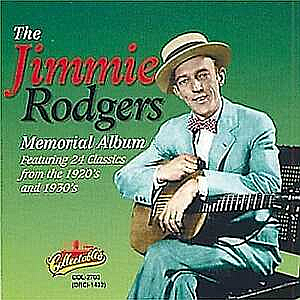 “I was pleased that Burns explained early on the importance of Jimmie Rodgers. I’m a huge fan. To me Jimmie is to Country Music what Robert Johnson was to Rock and the Blues…so important he has gotta be there. His artistry holds up, after all these years.
“I was pleased that Burns explained early on the importance of Jimmie Rodgers. I’m a huge fan. To me Jimmie is to Country Music what Robert Johnson was to Rock and the Blues…so important he has gotta be there. His artistry holds up, after all these years.
“There were a number of significant artists who have received little or no mention. Hardly mentioned were Webb Pierce and Don Gibson. Ray Charles’ crossover version of “I Can’t Stop Loving You” got more time than Don did (he wrote the song and had a country hit with it). No mention of Claude King’s “Wolverton Mountain” or Elton Britt and Floyd Tillman. There was only a minor reference to Jim Reeves, a country music giant, who had hits year after year even after he died. It seems to me they skipped over some deserving artists to go with the “super big names” and in-depth history on performers like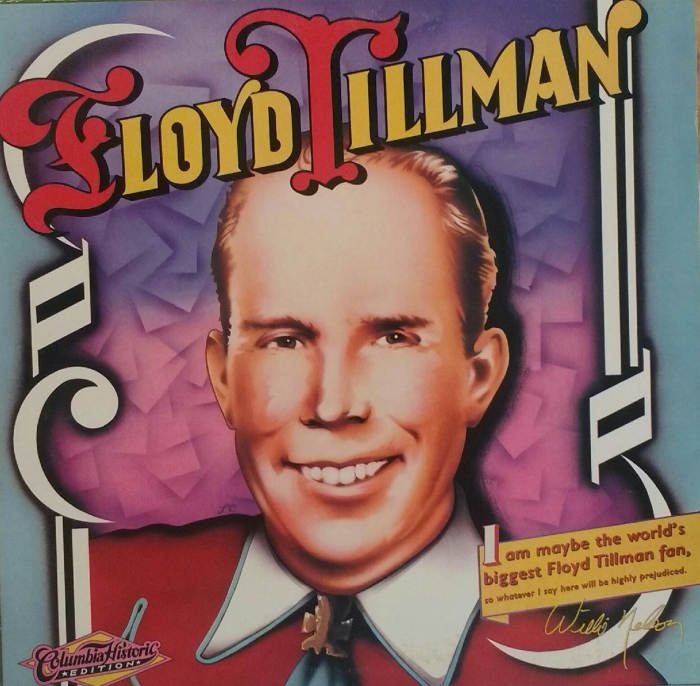 Johnny Cash, The Carter Family, Patsy Cline. It’s too bad ‘some’ of that in-depth content couldn’t have been edited to allow more time for a few performers who seem to have been omitted due to time constraints. For my tastes, there is ‘Too Much Information’ on the biggest names and not enough on some other important artists.
Johnny Cash, The Carter Family, Patsy Cline. It’s too bad ‘some’ of that in-depth content couldn’t have been edited to allow more time for a few performers who seem to have been omitted due to time constraints. For my tastes, there is ‘Too Much Information’ on the biggest names and not enough on some other important artists.
“For example, the series mentioned Hank Snow, but he didn’t receive nearly the credit he deserved. They haven’t mentioned Johnny Horton and he had a lot of hits such as “Battle of New Orleans,” & “North to Alaska.” They mentioned Hank Williams Sr.’s marriage to Billie Jean Jones…but they didn’t mention that after Hank’s death, Johnny Horton married Hank’s widow. Later Horton died in a head-on collision, on a bridge in Texas, while returning home to Shreveport after performing in Austin. (The series seems to enjoy pointing out tragedies involving country stars! But they missed one there!)
 “If time was the issue that led to certain omissions, it seems to me there are currently stories in the show that could have been told, but shortened. As an example, there was a minutiae of information about the plane crash that killed Patsy Cline, Hawkshaw Hawkins, and Cowboy Copas. That needed to be included, yet they had similar minutiae in the biographies of Johnny Cash and The Carter Family. I think the filmmakers could have told some of those really lengthy stories in one-third of the time and, in so doing, covered more ground overall.
“If time was the issue that led to certain omissions, it seems to me there are currently stories in the show that could have been told, but shortened. As an example, there was a minutiae of information about the plane crash that killed Patsy Cline, Hawkshaw Hawkins, and Cowboy Copas. That needed to be included, yet they had similar minutiae in the biographies of Johnny Cash and The Carter Family. I think the filmmakers could have told some of those really lengthy stories in one-third of the time and, in so doing, covered more ground overall.
“There are other pioneering artists who have received little or no mention: The Louvin Brothers, The Delmore Brothers, guitarist/songwriter/singer Merle Travis, Lefty Frizzell (they mention him, but not nearly enough). So far, Freddie Hart “Easy Lovin” & “Loose Talk,” etc. is missing. There was a minor mention of Ferlin Husky “Gone” & “Wings of a Dove.” Faron Young “If You Ain’t Lovin’ (You Ain’t Livin’)” & “Hello Walls” (slight mention); Sonny James “Young Love” etc. (No mention and Sonny had lots of big hits); George Hamilton IV “A Rose and a Baby Ruth” & “Abilene” (no mention).
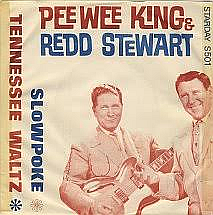 “I was surprised there was no information on Pee Wee King and Redd Stewart with “The Tennessee Waltz.” Besides having their own country hit with the song they wrote, Patti Page recorded it and had a number one pop chart hit. Her version sold millions of copies within six months! “The Tennessee Waltz” is the Official State Song of Tennessee, for crying out loud! Then Pee Wee and Redd recorded “Slowpoke,” which was a number one hit for 14 weeks in 1951.
“I was surprised there was no information on Pee Wee King and Redd Stewart with “The Tennessee Waltz.” Besides having their own country hit with the song they wrote, Patti Page recorded it and had a number one pop chart hit. Her version sold millions of copies within six months! “The Tennessee Waltz” is the Official State Song of Tennessee, for crying out loud! Then Pee Wee and Redd recorded “Slowpoke,” which was a number one hit for 14 weeks in 1951.
“The film refers to the 1958 Best Country & Western Grammy Award going to The Kingston Trio for “Tom Dooley.” Everyone knew the Kingston Trio was actually a “folk trio.” They won the “Country” Award because the Grammy people of that era were such musical snobs they didn’t feel actual country music performers or recordings were worthy of the award (that is important information and it should have been pointed out).
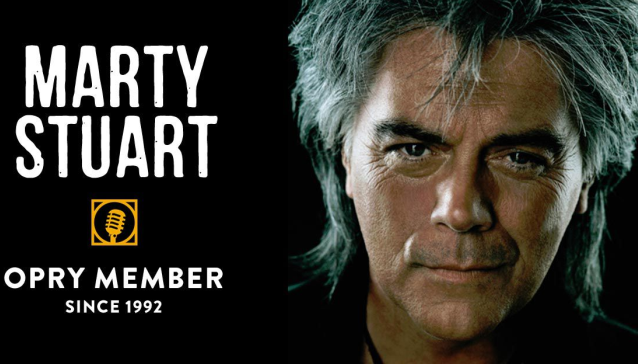 “This series has been thoroughly and well researched. In general, their historical facts, particularly those relevant to the early stages of country music, are right on. I completely agree that Black Music strongly influenced the genre and that Anglo-Saxon instrumentation, storytelling lyrics, and “mournful” vocals had a big influence on early Country Music — but Anglo-Saxon influences were not the only roots. Marty Stuart is a great spokesman for Country Music, but the filmmakers may have relied too much on his personal viewpoint. However, Marty is certainly a credible and good resource. He has performed and been a star of both mainstream Country Music and Bluegrass Music.
“This series has been thoroughly and well researched. In general, their historical facts, particularly those relevant to the early stages of country music, are right on. I completely agree that Black Music strongly influenced the genre and that Anglo-Saxon instrumentation, storytelling lyrics, and “mournful” vocals had a big influence on early Country Music — but Anglo-Saxon influences were not the only roots. Marty Stuart is a great spokesman for Country Music, but the filmmakers may have relied too much on his personal viewpoint. However, Marty is certainly a credible and good resource. He has performed and been a star of both mainstream Country Music and Bluegrass Music.
“I worked in media, so I realize the series can’t mention or include every deserving party. There is only so much time available and anyone producing a show runs up against that wall. I happily go on record as liking and very much enjoying this documentary. As the series progresses, I will send along further thoughts and comments.” ….. Jay
Editor’s note:Jay has written another post on “Country Music” episodes 5 & 6. You can read it here.
Also, since Jay mentioned Jim Reeves, and we are thinking about the history of Country Music, I am featuring this rare video of Jim singing one of his most memorable and biggest hits. It will take you back to 1960.
Note from QZVX: In addition to Jay’s ongoing comments on Ken Burn’s PBS Series, in the future we will publish a feature article on his career. Jay has had an interesting life in radio, music and entertainment. Even though he was a prominent Seattle jock for many years, how many of you knew he was the voice of Mattel’s vintage ‘Talking Ken Doll’ and other rare collector’s “talking toys”? As Jay said: “I am proud of my million selling Mattel produced records, even if nobody knows that the voice they hear is mine.” Hamilton has agreed to share a number of historical stories that will be of interest to our readers. Jay was raised in Washington and he was active in the music business and radio, back in the ’50s and ’60s, when rock ‘n’ roll was catching on in the Pacific Northwest. Jay’s friends include country star and producer, Gail Davies, and her late brother, Ron. Jay met them many years ago through mutual friend Bill Carter, a songwriter who has written hits for several “name” artists. Ron Davies wrote the Pacific Northwest classic “It’s You Alone” recorded by The Fabulous Wailers. Jay will tell us that story in the future.

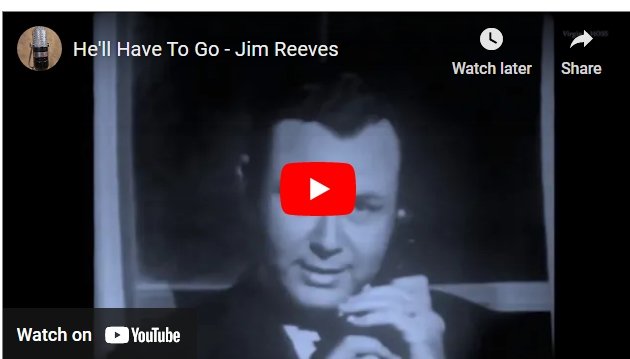
Some comments may be held for moderation. (New users)